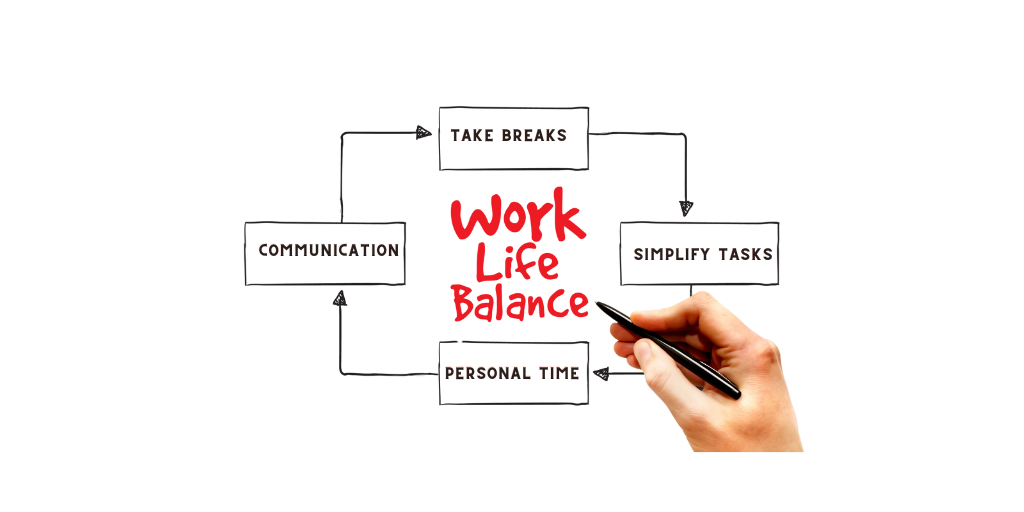Mastering the Art of Work-Life Balance: Unveiling the Top 10 Causes of Stress at Work:
In our fast-paced and demanding modern world, achieving a healthy work-life balance has become increasingly challenging. The constant juggling act between professional responsibilities and personal commitments can often lead to overwhelming stress. If you've ever wondered what exactly contributes to this stress at work, you're not alone. In this article, we delve into the top 10 causes of stress at work, unveiling the factors that can hinder our pursuit of a harmonious work-life balance.
From excessive workload and strict deadlines to toxic work environments and lack of support from superiors, these stressors can significantly impact our mental and physical well-being. Understanding the root causes of workplace stress is the first step towards effectively managing it and finding equilibrium in our lives.
Whether you're an employee looking to improve your well-being or an employer seeking to create a healthier work environment, this article will provide valuable insights and practical tips to help you navigate the challenges and find a better work-life balance. Together, let's uncover the secrets to mastering the art of work-life balance and reclaiming our peace of mind.
Understanding the Concept of Stress at Work:
Work-related stress is a state of mental or emotional strain that arises from the pressures and demands of the workplace. It can manifest in various ways, such as feeling overwhelmed, anxious, or exhausted. While some level of stress can be motivating and productive, excessive and prolonged stress can have detrimental effects on our well-being.
Stress at work can stem from a variety of sources, including the nature of the job, the work environment, and the individual's ability to cope with the demands placed upon them. It's important to recognize that everyone experiences stress differently, and what may be stressful for one person may not be for another. However, there are common causes of stress that many individuals encounter in the workplace.
Top 10 Causes of Stress at Work:
- Excessive Workload: The pressure to constantly meet deadlines and handle high volumes of work can be overwhelming. When there are not enough resources or time to complete tasks, it can lead to stress and a feeling of being constantly behind.
- Strict Deadlines: Tight deadlines can create a sense of urgency and pressure, making it difficult to manage time effectively. When there is little room for error or delays, stress levels can skyrocket.
- Lack of Control: Feeling like you have little control over your work or decision-making processes can be incredibly stressful. When individuals are unable to have a say in how they complete their tasks or deal with challenges, it can lead to feelings of frustration and helplessness.
- Unclear Expectations: When expectations are not clearly communicated or constantly changing, it can be challenging to meet them. Uncertainty about what is expected can contribute to stress and anxiety.
- Poor Work-Life Balance: The inability to separate work from personal life can lead to chronic stress. When work encroaches on personal time and prevents individuals from engaging in activities they enjoy, it can negatively impact their well-being.
- Toxic Work Environment: A toxic work environment characterised by negativity, conflict, and lack of support can be highly stressful. Interpersonal issues, bullying, and a general lack of respect can take a toll on mental health.
- Lack of Recognition and Reward: When hard work goes unnoticed or is not appropriately rewarded, it can lead to feelings of frustration and demotivation. The absence of recognition can make individuals question the value of their efforts, contributing to stress.
- Insufficient Support from Superiors: When employees do not receive the necessary support and guidance from their superiors, it can make it challenging to perform well and meet expectations. This lack of support can create stress and feelings of being unsupported.
- Job Insecurity: The fear of losing one's job or facing uncertain employment prospects can be a significant source of stress. The constant worry about job security can affect mental well-being and hinder work-life balance.
- Lack of Work Autonomy: Feeling micromanaged or having limited autonomy over one's work can be highly stressful. When individuals are not trusted to make decisions or have control over their work processes, it can lead to feelings of frustration and reduced job satisfaction.
The Impact of Stress on Work-Life Balance:
Stress at work can have a profound impact on our ability to maintain a healthy work-life balance. When stress levels are high, it can be challenging to switch off from work and fully engage in personal activities and relationships. This imbalance can lead to burnout, strained relationships, and a diminished quality of life.
Excessive stress can also affect our physical health, leading to symptoms such as headaches, fatigue, sleep disturbances, and weakened immune function. The negative effects of stress can spill over into all areas of our lives, making it crucial to address and manage workplace stress effectively.
Tips for Achieving Work-Life Balance:
Achieving a healthy work-life balance is possible with the right strategies and mindset. Here are some tips to help you find equilibrium and prioritise your well-being:
- Set Boundaries: Establish clear boundaries between work and personal life. Determine specific times when you will focus solely on work and when you will dedicate time to personal activities.
- Practice Self-Care: Prioritise self-care activities such as exercise, relaxation techniques, and hobbies. Taking care of your physical and mental well-being will help you manage stress more effectively.
- Learn to Delegate: If possible, delegate tasks and responsibilities to others. Don't be afraid to ask for help when needed, and trust in the abilities of your colleagues.
- Time Management Techniques: Utilise effective time management techniques, such as prioritising tasks, breaking them down into smaller, manageable chunks, and utilising tools like to-do lists and calendars.
- Communication: Openly communicate with your superiors and colleagues about your workload, deadlines, and any challenges you may be facing. Effective communication can help manage expectations and reduce stress.
- Take Regular Breaks: Incorporate regular breaks into your workday to rest and recharge. Stepping away from your desk and engaging in activities that bring you joy can help reduce stress levels.
- Practice Mindfulness: Cultivate mindfulness by being fully present in the moment and paying attention to your thoughts and emotions. Mindfulness can help reduce stress and improve overall well-being.
Effective Stress Management Techniques:
When faced with workplace stress, it's important to have effective stress management techniques in your toolkit. Here are some strategies to help you better cope with stress:
- Deep Breathing: Practise deep breathing exercises to activate the body's relaxation response. Take slow, deep breaths, and focus on the sensation of your breath entering and leaving your body.
- Physical Activity: Engage in regular physical activity to reduce stress and improve mood. Exercise releases endorphins, which are natural mood boosters.
- Journaling: Write down your thoughts and emotions in a journal to gain perspective and release stress. Journaling can help you process your feelings and identify patterns or triggers.
- Social Support: Seek support from friends, family, or coworkers. Sharing your feelings and experiences with others can provide comfort and help alleviate stress.
- Healthy Lifestyle: Maintain a healthy lifestyle by eating nutritious meals, getting enough sleep, and avoiding excessive alcohol or caffeine consumption. Taking care of your physical health can better equip you to handle stress.
Creating Boundaries Between Work and Personal Life
Creating boundaries between work and personal life is essential for achieving a healthy work-life balance. Here are some strategies to help you establish and maintain those boundaries:
- Designate Work-Free Zones: Create specific areas or times in your home that are designated as work-free zones. This can help separate your personal space from your work responsibilities.
- Turn Off Notifications: Turn off work-related notifications outside of designated work hours. This will help prevent constant interruptions and allow you to fully engage in personal activities.
- Set Realistic Expectations: Be realistic about what you can accomplish in a given day or week. Avoid overcommitting yourself and learn to say no when necessary.
- Unplug Regularly: Take regular breaks from technology and disconnect from work-related communication. Use this time to engage in activities that bring you joy and relaxation.
Time Management Strategies for Better Work-Life Balance:
Effective time management is crucial for achieving a better work-life balance. Here are some strategies to help you manage your time more efficiently:
- Prioritise Tasks: Identify the most important tasks and prioritise them accordingly. Focus on completing high-priority tasks first and avoid getting overwhelmed by less important ones.
- Break Tasks into Smaller Steps: Break down large tasks into smaller, more manageable steps. This will make them less intimidating and easier to tackle.
- Utilise Productivity Tools: Take advantage of productivity tools such as to-do lists, calendars, and project management software. These tools can help you stay organised and on top of deadlines.
- Avoid Multitasking: Avoid the temptation to multitask, as it can decrease productivity and increase stress levels. Instead, focus on one task at a time and give it your full attention.
-1.png?width=559&height=280&name=Work%20life%20balance%20(1024%20x%20512%20px)-1.png)
The Role of Employers in Promoting Work-Life Balance:
Employers play a significant role in promoting work-life balance within their organisations. Here are some ways employers can create a healthier work environment:
- Flexible Work Arrangements: Offer flexible work arrangements, such as remote work options or flexible hours. This allows employees to better manage their personal commitments and achieve a better work-life balance.
- Encourage Breaks: Encourage employees to take regular breaks throughout the workday. Provide designated spaces where employees can unwind and recharge.
- Promote Open Communication: Foster a culture of open communication where employees feel comfortable discussing their workload, challenges, and ideas for improvement. Encourage feedback and actively listen to employee concerns.
- Recognize and Reward: Recognize and reward employees for their hard work and achievements. Acknowledging their efforts can boost morale and motivation.
Conclusion:
Achieving a healthy work-life balance is a continuous journey that requires awareness, intention, and action. By understanding the root causes of stress at work and implementing effective strategies for managing stress, we can take steps towards reclaiming our peace of mind and finding equilibrium in our lives. Whether you're an employee or an employer, prioritising work-life balance is not only beneficial for individual well-being but also for overall productivity and success. Let's cultivate a culture that values and supports work-life balance, creating thriving workplaces and happier, healthier individuals.




